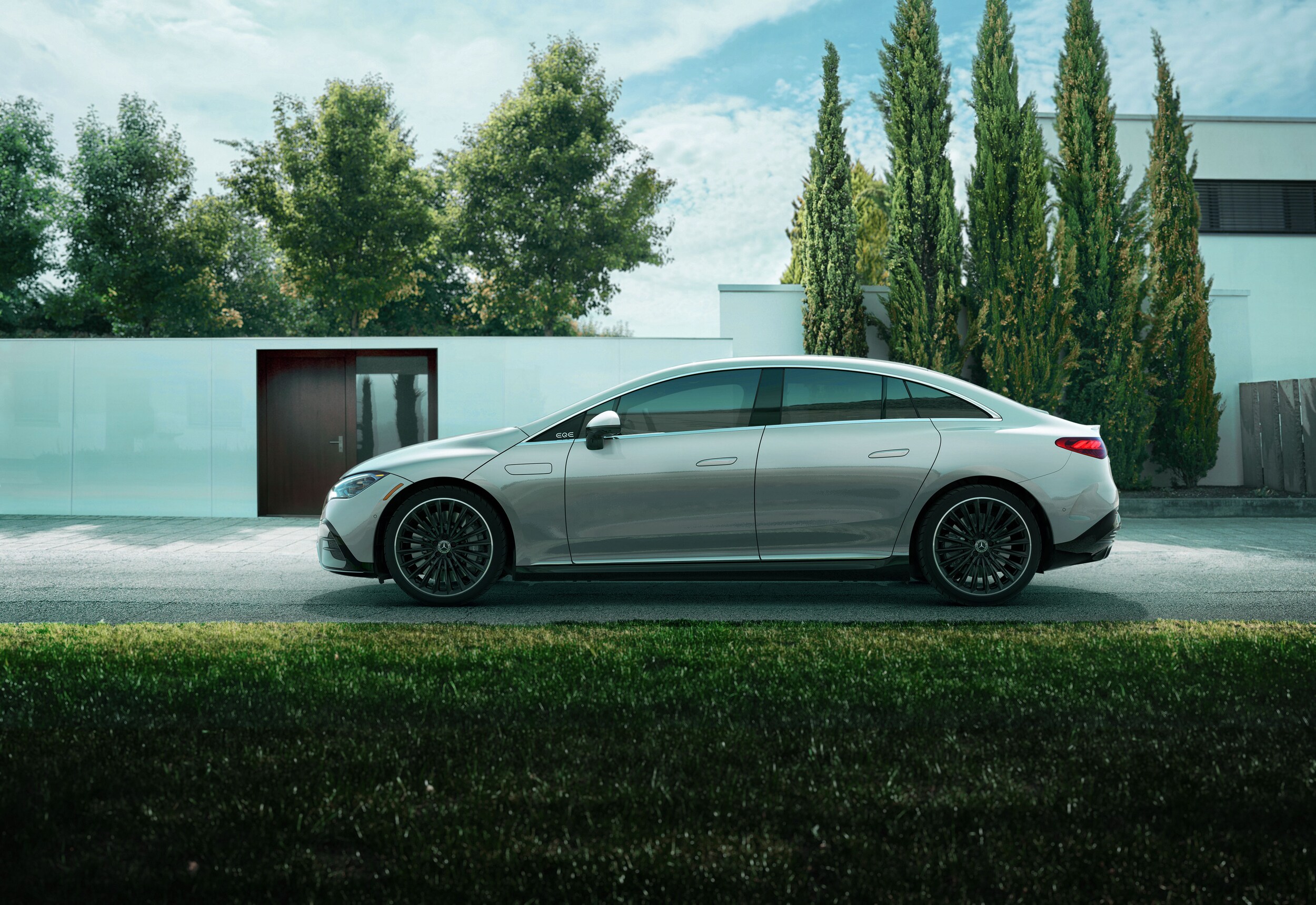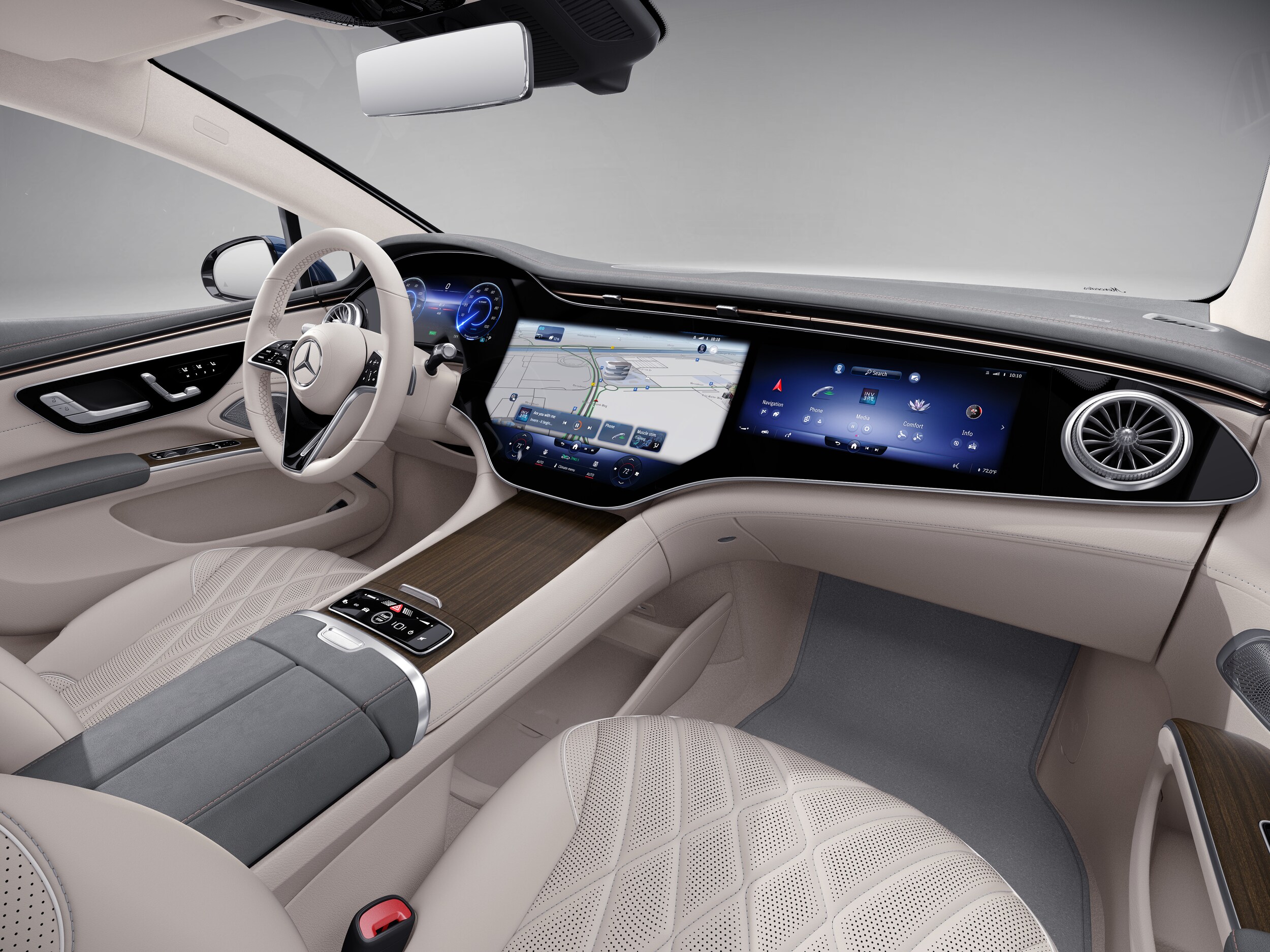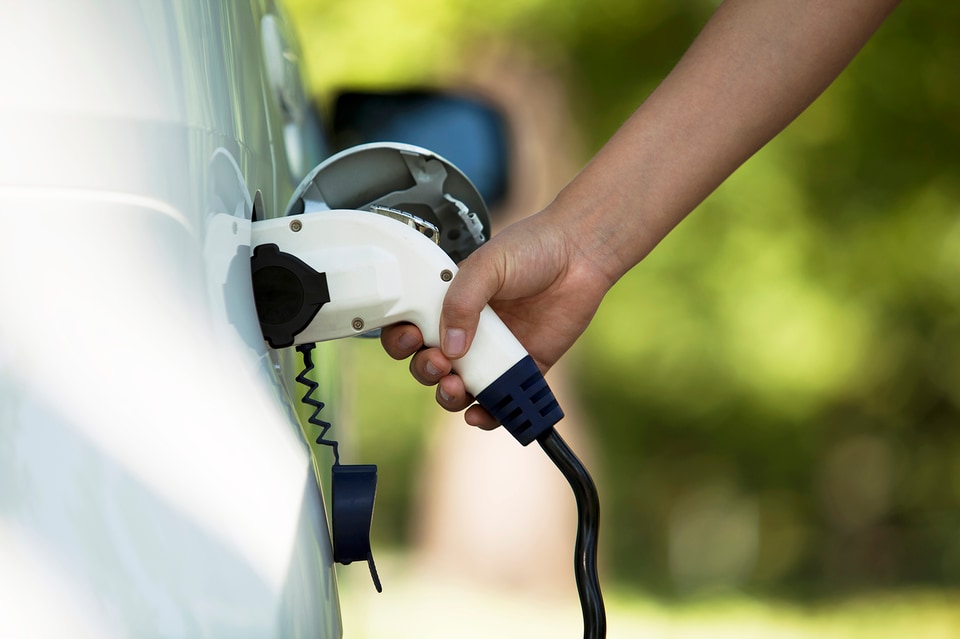
Understanding EVs
Which EV is Right for Me?
Benefits of Plugging In
96%
Owning an EV
Understanding Charging
Charging times vary depending of the type of charger used.
Level 1 chargers use a standard household outlet and charge about 2-5 miles of range per hour, making Level 1 a good choice for plugin hybrid vehicles but not battery electric vehicles.
Level 2 chargers can be installed at your home by a professional electrician and charge about 10-20 miles of range per hour. A good choice for any EV when charging overnight or all-day is possible.
Level 3 fast chargers are the most efficient and can be found at commercial locations. Level 3 can charge about 60-80 miles of range in about 20 minutes, making it a good choice for any EV when a quick charge is needed on the go.

Mercedes Benz - Battery Life - Warranty
If you keep up with EQS battery service checks and use the aforementioned battery life tips, you should have no problem getting your EQS battery to last 10 years or more. Mercedes-Benz also offers a generous 10-year/155,000-mile warranty for the EQS battery, giving you total confidence and peace of mind when you take ownership.
Try to avoid charging your EQS every single night, and maintain a battery percentage of 20%-80%.
Park your EQS in a shady area, as high temperatures are known to reduce a battery's total capacity.
Use the slower charging option when you can. DC Fast Charging is convenient when you need to gain some electric range quickly, but overusing the DC Fast Chargers can deplete your battery over time.

How Often is EQS Battery Service Required?
One of the key benefits of owning an electric vehicle is the limited maintenance required. EV battery maintenance is only needed every 10,000 to 20,000 miles. You can rejoice in the fact that you'll spend more time exploring, but it's still critical that you never miss an EQS battery service visit! During this service, the battery and related components are thoroughly inspected to confirm that everything is in strong condition.

Charging Stations Near Mercedes-Benz of Elmbrook
Common Questions
Other advantages of owning an EV include:
- Eligible EVs may also qualify for HOV lane access, which are normally restricted to vehicles with multiple passengers.
- Many electric companies offer lower rates based on the time of use. With EVs, you can save money by charging during off-peak times.
- If you're able to charge from work or home, there's usually no need to stop to refuel like you would in a gas-powered vehicle.
- EVs produce zero tail-pipe emissions resulting in cleaner air and better health.
This will vary depending on the local price of electricity and gas and where you are charging (at home or public charger), but most EV owners can expect to save on fuel cost. A recent Consumer Reports study found the “typical EV owner who does most of their fueling at home can expect to save an average of $800 to $1,000 a year on fueling costs over an equivalent gasoline-powered car.”
Source: Benjamin Preston. October 08, 2020. EVs Offer Big Savings Over Traditional Gas-Powered Cars.
https://www.consumerreports.org/hybrids-evs/evs-offer-big-savings-over-traditional-gas-powered-cars/A recent Consumer Reports study found “maintenance and repair costs for EVs are significantly lower over the life of the vehicle – about half – than for gasoline–powered vehicles, which require regular fluid changes and are more mechanically complex. The average dollar savings over the lifetime of the vehicle is about $4,600.”
Source: Benjamin Preston. October 08, 2020. EVs Offer Big Savings Over Traditional Gas-Powered Cars.
https://www.consumerreports.org/hybrids-evs/evs-offer-big-savings-over-traditional-gas-powered-cars/- Level 1 chargers use a standard household outlet and charge about 2-5 miles of range per hour, making Level 1 a good choice for plugin hybrid vehicles but not battery electric vehicles.
- Level 2 chargers can be installed at your home by a professional electrician and charge about 10-20 miles of range per hour. A good choice for any EV when charging overnight or all-day is possible.
- Level 3 fast chargers are the most efficient and can be found at commercial locations. Level 3 can charge about 60-80 miles of range in about 20 minutes, making it a good choice for any EV when a quick charge is needed on the go.
Ready to Shop?
How Can We Help?
* Indicates a required field
 AdChoices
AdChoices